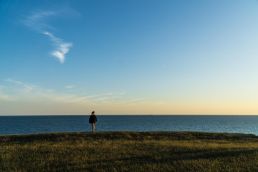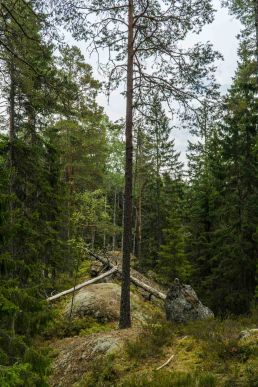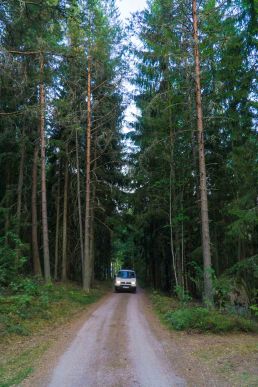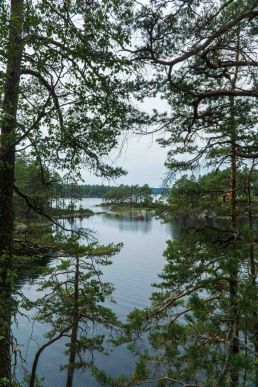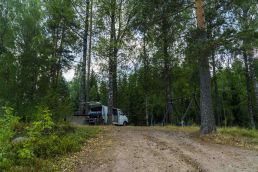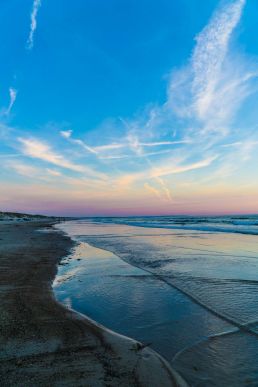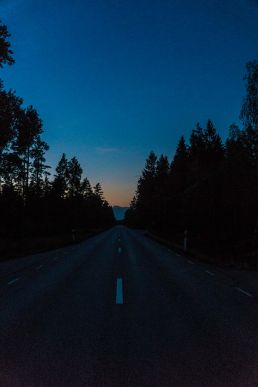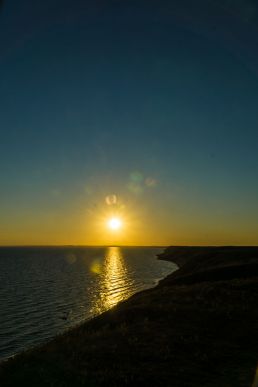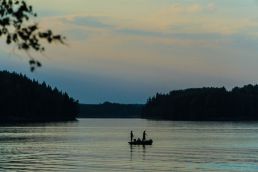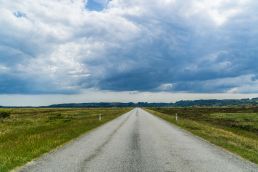There is an inexplicable sense of freedom when you drive your car on holiday. It’s an open book, it can get you anywhere. A van epitomises this kind of traveling, a tool for the eternal road trip.
My first vanlife exploration brought me to unknown parts of Germany and Scandinavia, concretely Denmark and Sweden. In 18 days enjoying the pleasures of Ohfy, a middle aged but healthy VW T4, Freya and I had a blast through the great natures of the North. Oh, the North.
Robert, a danish friend I met in Vietnam’s Cat Ba, texted me I was about to enjoy the summer of a lifetime. So, in a sense, I cheated the true Scandinavan experience, none other than cold and rain. Lucky me, lucky us.
The first days were exciting; sleeping in the middle of Leipzig, a small version of Berlin, hiding from neighbours and Police, but truly exploiting what having a van with a bed means. I discovered the immense pleasure to have a house on wheels. Potentially, a very cheap option of traveling to the grueling lands of Northern Europe, the rich and expensive nations for southerners like me, a Spanish guy and, adding to it, an active globetrotter.
The excitement of breaking the rules –without bad intentions– was intense those two nights. Then it dissipated and gave way to the problem with van roaming in most Western countries. You’re not allowed to roam free, and you’re quickly robbed from your idea of the ideal road trip. Most European countries won’t allow you to freely enjoy an essential feature of your van: sleep in it.
What? That’s not fun!
Luckily, it wasn’t difficult to respectfully skip the rules in Denmark (sorry?), where there’s not much control on campers on most of the country –overnight sleep is tolerated in rastplats (rest areas). In Sweden, a place where Allemansrätten is not only respected but enhanced, it wasn’t an issue at all. Allemansrätten is a principle of ´freedom to roam’ that applies to everyone and gives us the capacity to freely enjoy the land.
Bam!, that’s what I was looking for.
Now I quote the Swedish tourist board: “Sweden has no Eiffel Towers. No Niagara Falls or Big Bens. Not even a little Sphinx. Sweden has something else – the freedom to roam. This is our monument”. Indeed, it is a great monument to something we are mistreating repeatedly: nature.
With less than 12 basic rules you must follow, all of them common sense, the Swedes actually offer what a road trip needs best: no boundaries, no limitations except the ones covered by respect and common sense. And needless to say, the Swedish do take nature and environment quite seriously. Not by banning or restricting, rather doing the opposite, they grow an environmental consciousness like no other.
Driving through Sweden I got to feel very small. The long straight lines, the majestuous forests endlessly expanding on each side of the van. There you never felt a need to rush, and with the passing of every day, with our little mobile home getting us to a new place, the awareness of how pure nature was in those lands overtook me. How precious this land is, I thought.
By being able to go anywhere, to step on any hill and swim on any lake, my respect for nature and wildlife grew significantly. And that was in only two weeks. I never saw plastic bottles floating in the water or papers laying on the floor. In more than nine months, three continents and fifteen countries, this was never the case. So the benefits of these policies seem clear to me.
Driving back to Germany, I reflected on reasons why the Swedish case is almost an exception. First one, easy: privatization rules the world today; every acre of land is exploitable. Giving freedom to roam can mess with this basic mantra of Capitalism. Other reasons such as the massification of tourism, scarcity of space or our general lack of respect for nature do play a role. Ultimately, I think it all resides in a question of culture and education.
If everyone would consider their own environment how Swedish do, thanks to this massive culture promoted by the Allemansrätten, we would benefit from a cleaner and healthier version of humanity. We would really share the land, and thus, we’d care more about what we do to it and how we do it.
It makes me sad to think I can’t camp anywhere I want back home. It’s banned, but really, someone can tell me why? I’m not planning to bother anyone nor messing with nature, my plan is to go my own way, enjoy the environment I was born in. Never lit a fire, never drive off-road, never litter the land. With common sense, there is no reason to actually deny me or others that right.
Unfortunately, what I felt in Sweden you can feel in a very few countries nowadays. And it’s a restriction that hurts, because it’s ours as all others, man-made.

